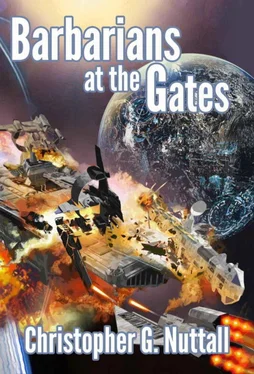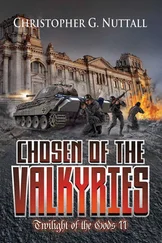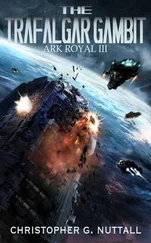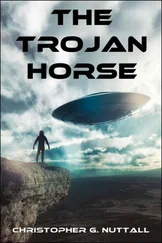“You’re famous,” Kratman said mildly. “Why do you think the Senate took fright?”
“I don’t understand,” Marius admitted. “Why did they take fright?”
“The Core Worlds are the only ones where public opinion must be taken seriously,” Kratman reminded him gently. “Earth’s population can make or break Senators—and don’t they just know it! Why do you think they’ve never risked cutting the dole money handed out to the permanently unemployed, or the free food handed out to the starving, or the free access to the datanet and other public services? Earth’s massive population of teeming sheep would never allow it. How many Senators would lose their seats, no matter how hard they tried to rig the elections?” He grinned.
“And you saved the entire planetary population,” he added. “Now, you’re their hero, the man who can do no wrong.”
“Right,” Marius said. He checked his appointments calendar with a frown. There had been literally thousands of requests for interviews, all of which had been refused by his staff. He’d simply never checked up on it before. “Why does that scare the Senate?”
“Think about it,” the Professor said. “The Federation was designed to do the impossible—to provide interstellar government for the thousands of planets settled by humanity. The founding worlds were reluctant to create an overbearing political entity, so they attempted to hamstring the Federation by limiting the scope of its powers. But, as such entities tend to do, the Federation grew more powerful anyway, while the politicians became one great inbred family. The Inheritance Wars only enhanced that trend because the Federation won, and there seemed to be no reason to question the political situation.”
“‘If it ain’t broke, don’t fix it,’” Marius quoted.
“Precisely,” Kratman agreed. He adopted a lecturing tone. “The problem is—and this affects all governing systems—that as the government grows more powerful, it tends to form an elite—a group of people whose sole concern is remaining in power. Some of the elite genuinely believe in serving the population and work for their betterment, others are in it only for their own power, but all of them work to perpetrate the system. Each of the Senators, Marius, represents over a thousand worlds. If they want to get elected, they have to be part of the elite or be willing to join it. The ones who refuse to join rarely get elected.
“And the elites,” Kratman continued pedantically, “because their hold on power is secure, end up becoming increasingly disconnected from the realities of life. They don’t understand the basic laws of the universe, let alone the effect they have on others. They don’t care that the out-worlds curse them as rapists who strip their worlds of natural resources and grind them under with oppressive taxes—after all, they’re the elite . Why should they care?”
Marius sighed, seeing the truth of what the Professor was saying. But before he could get a word in edgewise, Kratman had gone on.
“While there were three factions in government, the whole structure held together remarkably well—astonishingly well,” Kratman lectured. “But then the Blue Star War was launched, and the early offenses turned into stunning defeats. The Imperialist Faction lost power and collapsed into the morass of the elites. And yet the shock of that was mitigated, because the Imperialists were still part of the elite. The elite couldn’t afford too much public humiliation because it would undermine their ability to remain in control.”
Marius nodded.
“You know the problems with maintaining something the size of the Federation,” the Professor added. “The Federation has to give vast latitude to its officers, or else they wouldn’t be able to react in time to stop a small threat from turning into a large one. And yet, some of those officers see the inner corruption of the Federation and start considering declaring independence, or even attempting to make themselves Emperor. I’m honestly surprised that it’s taken this long for one of the admirals to try to strike for the purple.”
Marius winced. Admiral Justinian had wisely transferred most of his family to Harmony before he’d attempted to overthrow the Federation, but some of them—second- and third-cousins, mostly—had remained on Earth. The Senate had ordered them arrested, tried and sentenced to death, along with a handful of captured traitors who had aided Justinian in crippling Earth’s defenses. Marius had forced himself to watch the executions—they had been broadcast live as a warning to any other would-be traitors—and then he had gone to the head and been savagely sick. He’d seen death before, as he’d ordered pirates thrown out of the airlock into the cold unforgiving vacuum of space, but the executions had been different. They had been nothing more than blood sport, or worse, the Senate lashing out at whoever was unlucky enough to catch its attention. Most of those second- and third-cousins hadn’t even seen Admiral Justinian in years, and obviously had had no idea what Justinian was planning, but that hadn’t saved their lives.
And when innocence was no defense, what good was the Federation for?
“And then, you saved their lives,” Kratman said, breaking into Marius’s train of thought.
Marius snorted. “Shouldn’t they be happy with me?”
“Yes, of course, but much of the Senate has no grip on reality. You saved their lives, yes, but to most of them, it doesn’t matter because you made yourself popular with the mob. Of course they’re scared of you. They have to use you, but at the same time, they have to worry about what you might do…”
“I’m not about to make myself emperor,” Marius protested.
“You’re not one of the elite,” Kratman countered. “That fact alone means they’re probably going to be divided about what to do with you. They may attempt to marry you into the elite—there are quite a few eligible senatorial daughters on Earth—or they may set you up to fail. Your popularity with the mob makes the latter course dangerous, but given time…the mob will lose interest in you. And then you’d better watch your back.”
Marius took a breath. The years fell away and he remembered the Matterhorn , the day they’d jumped through the Asimov Point and into Sapphire. He remembered how they’d been caught in an ambush at point-blank range, and how the superdreadnaught had been crippled within the first few seconds of the ambush. And he remembered how then-Captain Kratman had somehow steered them back to the Asimov Point…they’d escaped the hellish slaughter, the only starship from the assault force to escape. They’d survived by sheer luck, and the determination of the starship’s captain.
“You may wish to ask yourself another question,” Kratman said. If he was aware of his former subordinate’s thoughts, he gave no sign. “Who has promoted you to the media?”
“I don’t know,” Marius admitted. Earth’s media was nominally free of control, but he knew that the Senate controlled many of the foremost media corporations. “Who…?”
“Good question,” Kratman agreed. “I haven’t the slightest idea. Someone seems to like you. Whoever it is, it’s someone with very good connections in the Federation Navy. You may want to think about what you’ll say when they come to you and ask for something in return.”
“I didn’t want to be a hero,” Marius protested. “I just did what needed to be done.”
“I know that, son,” Kratman said with uncommon gentleness. “But most of the people on Earth don’t know you as I do. They have to see it differently…and with all those piranhas among the Senators, you have to know that no one, not even the friendliest Senator, does anything for free.”
Читать дальше












